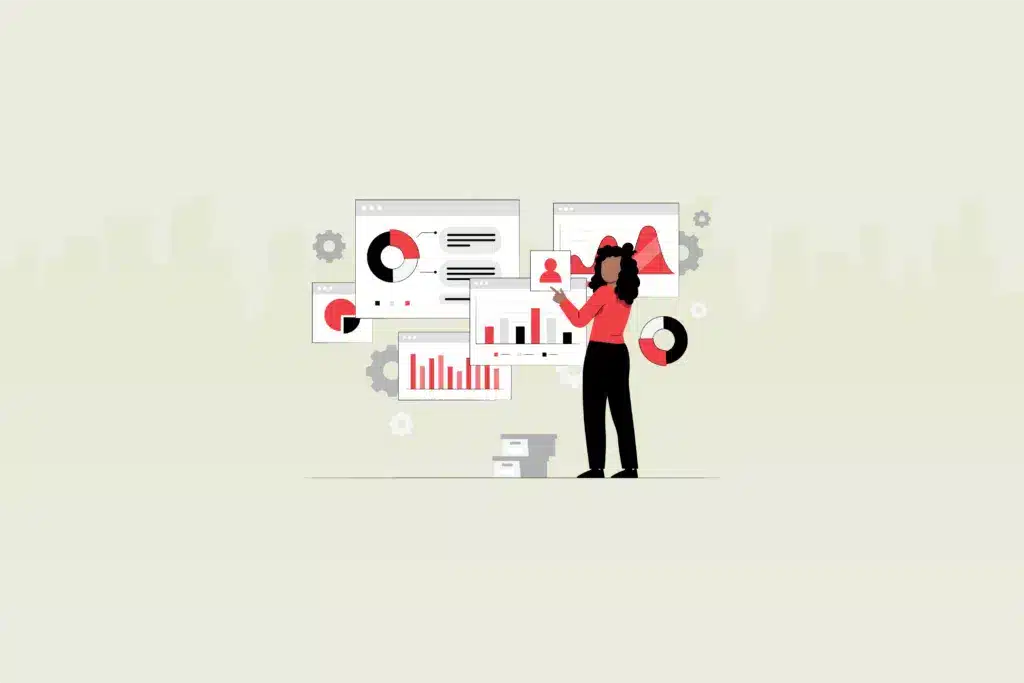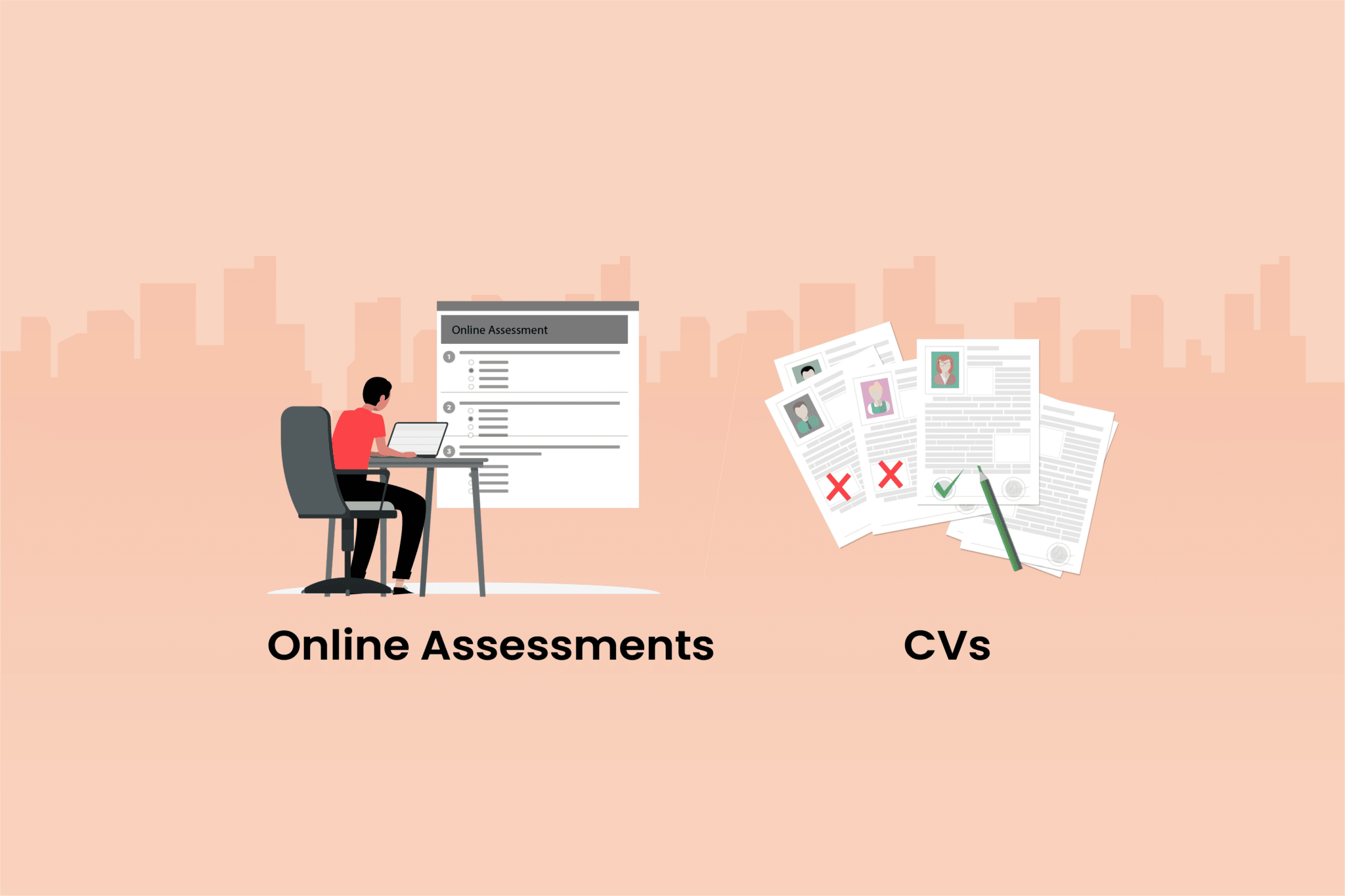In today’s ever-evolving digital landscape, the role of a copywriter has become increasingly crucial for businesses aiming to make a lasting impact on their target audience. As companies strive to cut through the noise and capture the attention of their customers, the demand for talented copywriters has grown significantly.
According to recent analytics, the recruitment trend for copywriters has witnessed a substantial upsurge, with a remarkable increase of X% in the number of job postings within the past year alone. This surge in demand is a testament to the recognition of the pivotal role that copywriters play in shaping brand narratives, crafting persuasive content, and driving engagement across various platforms. In this article, we will delve into the evolving landscape of copywriting recruitment and provide valuable insights to HR professionals and CXOs seeking to identify and attract top-notch copywriting talent.
Here are the top 50 Copywriter interview questions to ask job applicants:
10 general interview questions for Copywriter
- Can you walk me through your copywriting experience and highlight some of your most successful projects?
- How do you approach understanding the target audience and tailoring your copy to resonate with them?
- Can you describe a time when you had to work on a project with tight deadlines and limited information? How did you handle it?
- What research methods and tools do you utilize to gather insights and information for your copywriting projects?
- How do you ensure your copy aligns with the brand voice and messaging guidelines?
- Can you provide an example of a time when you had to revise your copy based on feedback from clients or stakeholders? How did you handle the feedback process?
- How do you stay updated on industry trends and best practices in copywriting?
- Can you share a challenging copywriting project you’ve encountered and explain how you overcame obstacles or hurdles in the process?
- How do you measure the success of your copy? What metrics or indicators do you consider?
- Describe a time when you collaborated with a team, such as designers or marketers, to create cohesive and integrated campaigns. How did you ensure effective collaboration?
5 sample answers to general interview questions for Copywriters
- Can you walk me through your copywriting experience and highlight some of your most successful projects?
Look for: A candidate who can showcase their relevant experience, demonstrate their versatility in different projects, and provide specific examples of successful outcomes.
Sample answer: “Throughout my career, I’ve worked on various copywriting projects across industries, including e-commerce, technology, and healthcare. One of my most successful projects was creating a series of email campaigns for an e-commerce client that resulted in a 30% increase in click-through rates and a 20% boost in conversions. I also collaborated on a website relaunch for a technology startup, where my persuasive copy led to a 40% increase in user engagement and a significant decrease in bounce rates.”
- How do you approach understanding the target audience and tailoring your copy to resonate with them?
Look for: A candidate who demonstrates a thorough understanding of audience analysis, research methods, and the ability to create a persuasive and targeted copy.
Sample answer: “When approaching a new project, I begin by conducting comprehensive audience research, including analyzing demographics, psychographics, and market trends. I also utilize tools such as customer surveys, social media listening, and competitor analysis to gather valuable insights. By understanding the target audience’s needs, pain points, and aspirations, I can craft copy that speaks directly to them, resonates on an emotional level, and ultimately drives the desired action.”
- How do you ensure your copy aligns with the brand voice and messaging guidelines?
Look for: A candidate who can demonstrate an understanding of brand positioning, adaptability, and the ability to maintain consistency in tone and messaging.
Sample answer: “Maintaining brand consistency is crucial in copywriting. To ensure my copy aligns with the brand voice and messaging guidelines, I thoroughly study the brand’s style guide, tone of voice documents, and any existing brand assets. I pay close attention to the brand’s values, personality, and target audience. By immersing myself in the brand’s voice, I can adapt my writing style accordingly and ensure consistency across various touchpoints, whether it’s website copy, social media content, or advertising campaigns.”
- How do you measure the success of your copy? What metrics or indicators do you consider?
Look for: A candidate who understands the importance of data-driven decision-making and can identify relevant metrics for evaluating the effectiveness of copy.
Sample answer: “Measuring the success of copy is essential to understand its impact. I consider various metrics depending on the project’s goals. For example, in email campaigns, I look at open rates, click-through rates, and conversion rates. In website copy, I focus on user engagement metrics like time on page, bounce rates, and scroll depth. Additionally, I track social media engagement, such as likes, comments, and shares. By analyzing these metrics, I can gauge the effectiveness of the copy and make data-driven optimizations to drive better results.”
- Can you describe a time when you had to work on a project with tight deadlines and limited information? How did you handle it?
Look for: A candidate who can demonstrate their ability to manage time effectively, prioritize tasks, and make informed decisions when faced with constraints.
Sample answer: “In a previous role, I was assigned a last-minute project with a tight deadline and limited information. To manage the situation, I immediately reached out to the stakeholders to gather as much information as possible. I focused on understanding the core message and goals of the project. Then, I quickly developed a clear and concise copy strategy and collaborated closely with the design team to ensure seamless integration of visuals and copy. Despite the constraints, I was able to deliver the project on time while maintaining a high standard of quality and meeting the client’s expectations.”
10 behavioral interview questions for Copywriters
- Tell me about a time when you had to handle constructive feedback on your copy. How did you receive and incorporate the feedback to improve your work?
- Describe a situation where you faced a challenging client request or conflicting project requirements. How did you navigate through it and deliver a successful outcome?
- Can you share an example of a project where you had to work collaboratively with other team members, such as designers or marketers? How did you ensure effective communication and alignment throughout the process?
- Tell me about a time when you had to work on a copywriting project that required you to quickly adapt to a new industry or niche. How did you familiarize yourself with the subject matter and create a compelling copy?
- Describe a situation where you had to manage multiple projects with competing deadlines. How did you prioritize your tasks and ensure timely delivery without compromising on quality?
- Can you share a time when you had to convince a skeptical or resistant audience through your copy? How did you approach the situation and what strategies did you employ to achieve the desired outcome?
- Tell me about a time when you identified an opportunity to optimize copy for better results. How did you go about analyzing the data or feedback, and what changes did you implement to improve the copy’s performance?
- Describe a situation where you had to manage unexpected changes or revisions in a copywriting project. How did you adapt to the new requirements and ensure a smooth transition while meeting the project’s objectives?
- Can you share an example of a project where you demonstrated your creativity and out-of-the-box thinking in developing a unique concept or approach for the copy? How did it contribute to the overall success of the project?
- Tell me about a time when you faced a tight budget or resource constraints for a copywriting project. How did you optimize your resources and still deliver an impactful copy within the limitations?
5 sample answers to behavioral interview questions for the Copywriter
- Tell me about a time when you had to handle constructive feedback on your copy. How did you receive and incorporate the feedback to improve your work?
Look for: A candidate who demonstrates the ability to receive feedback positively, adapt their approach, and show growth and improvement based on feedback.
Sample answer: “In a previous project, I received constructive feedback from a client who wanted certain sections of the copy to be more concise and engaging. I approached the feedback with an open mind and viewed it as an opportunity to enhance my work. I carefully considered the client’s suggestions, reviewed the copy with a critical eye, and made revisions accordingly. I also took the initiative to seek clarification when needed. By actively incorporating the feedback, I was able to deliver an improved version of the copy that aligned better with the client’s expectations.”
- Describe a situation where you faced a challenging client request or conflicting project requirements. How did you navigate through it and deliver a successful outcome?
Look for: A candidate who can demonstrate effective communication skills, negotiation abilities, and problem-solving capabilities in managing challenging client requests or conflicting project requirements.
Sample answer: “In a recent project, I encountered conflicting project requirements from different stakeholders. To address this challenge, I scheduled a meeting with the clients and stakeholders to understand their respective objectives and find common ground. I actively listened to their needs, asked clarifying questions, and proposed a creative solution that met the core objectives while finding a balance between the conflicting requirements. Through open and transparent communication, I was able to gain consensus, ensure a clear direction for the project, and ultimately deliver a successful outcome that satisfied all parties involved.”
- Can you share an example of a project where you had to work collaboratively with other team members, such as designers or marketers? How did you ensure effective communication and alignment throughout the process?
Look for: A candidate who can demonstrate their ability to collaborate effectively with cross-functional teams, communicate clearly, and maintain alignment throughout the project.
Sample answer: “In a recent marketing campaign, I collaborated closely with a team of designers and marketers to create a cohesive and impactful campaign. We established regular communication channels, including weekly meetings and shared project management tools, to keep everyone informed and aligned. I ensured that the team had a clear understanding of the campaign objectives, brand guidelines, and target audience. Through collaborative brainstorming sessions, iterative feedback loops, and open dialogue, we were able to leverage each other’s expertise and create a campaign that seamlessly integrated copy and design elements, resulting in a highly successful and visually captivating campaign.”
- Tell me about a time when you had to manage multiple projects with competing deadlines. How did you prioritize your tasks and ensure timely delivery without compromising on quality?
Look for: A candidate who can demonstrate effective time management skills, the ability to prioritize tasks, and maintain quality under pressure.
Sample answer: “In a previous role, I often had to juggle multiple projects with tight deadlines. To manage my workload effectively, I implemented a systematic approach. I would start by assessing the urgency and importance of each project, taking into account client expectations and project deliverables. I then created a detailed project timeline, setting clear milestones and deadlines for each task. By breaking down the work into manageable segments and leveraging project management tools, I could stay organized and maintain focus. I also communicated proactively with stakeholders, providing regular progress updates to manage expectations. Despite the pressure, I ensured that each project received the attention it deserved, delivering high-quality copy on time.”
- Can you share an example of a project where you identified an opportunity to optimize copy for better results? How did you go about analyzing the data or feedback, and what changes did you implement to improve the copy’s performance?
Look for: A candidate who demonstrates an analytical mindset, the ability to identify areas for improvement, and the initiative to implement data-driven optimizations.
Sample answer: “In a recent digital advertising campaign, I noticed that the click-through rates were not meeting our expectations. To improve the campaign’s performance, I analyzed the available data, including click-through rates, user engagement, and audience demographics. I also sought feedback from the marketing team and conducted A/B testing on different variations of the copy. Based on the insights gathered, I identified that the headline needed to be more compelling and the call to action more persuasive. I revised the copy accordingly, making it more concise, impactful, and aligned with the audience’s motivations. The result was a significant increase in click-through rates and overall campaign success.”
15 personality interview questions for the Copywriter
- How do you approach creative challenges in your work as a copywriter? Can you describe your problem-solving process?
- How do you handle criticism or feedback on your work? How do you ensure it doesn’t affect your motivation or creativity?
- How would you describe your writing style and voice? How do you adapt your style to different brands or target audiences?
- Can you share an example of a time when you had to work under pressure or tight deadlines? How did you manage the situation?
- How do you stay updated on industry trends, emerging platforms, and new copywriting techniques?
- Can you describe a situation where you had to convince others of your creative ideas or copywriting approach? How did you handle any resistance or objections?
- How do you maintain your creativity and fresh ideas when working on long-term projects or repetitive tasks?
- Can you share an example of a time when you had to multitask or balance multiple projects simultaneously? How did you prioritize and stay organized?
- How do you handle constructive criticism or suggestions from team members or clients? How do you ensure effective collaboration and communication?
- Can you describe a situation where you had to step outside your comfort zone as a copywriter? How did you approach it and what was the outcome?
- How do you manage your time and maintain productivity in a remote or virtual work environment?
- Can you share an example of a time when you had to think outside the box to solve a creative problem or overcome a writing block?
- How do you handle situations where you disagree with a client or team member’s direction or suggestions for the copy? How do you find a resolution or compromise?
- How do you ensure attention to detail and accuracy in your copywriting? Can you provide an example of a time when your keen eye for detail made a significant difference?
- How do you approach self-editing and proofreading your work? What strategies do you employ to catch errors and polish your copy?
5 sample answers to personality interview questions for the Copywriter
- How do you approach creative challenges in your work as a copywriter? Can you describe your problem-solving process?
Look for: A candidate who demonstrates a proactive and systematic approach to creative problem-solving, including research, brainstorming, and testing of ideas.
Sample answer: “When facing creative challenges, I begin by immersing myself in research to gain a deep understanding of the client’s industry, target audience, and goals. I then brainstorm ideas, often using mind-mapping techniques to generate a wide range of concepts. Next, I evaluate each idea based on its alignment with the client’s objectives and the target audience’s preferences. I may also conduct A/B testing or seek feedback from colleagues or focus groups to validate the effectiveness of the copy. This process ensures that the creative solutions I present are well-informed, strategic, and tailored to meet the client’s specific needs.”
- How do you handle criticism or feedback on your work? How do you ensure it doesn’t affect your motivation or creativity?
Look for: A candidate who demonstrates resilience, open-mindedness, and a growth mindset when receiving feedback, and who can effectively apply feedback to improve their work.
Sample answer: “I welcome criticism and feedback as valuable opportunities for growth and improvement. When receiving feedback, I listen attentively, seeking to understand the rationale behind it. I take a moment to separate the feedback from my attachment to the work and view it objectively. I focus on the constructive aspects and identify areas where I can enhance my skills or approach. It’s important to remain open-minded and receptive to feedback without taking it personally. By maintaining a growth mindset, I can channel the feedback into actionable steps for improvement, which ultimately fuels my motivation and creativity.”
- Can you describe a situation where you had to think outside the box to solve a creative problem or overcome a writing block?
Look for: A candidate who demonstrates creative thinking, adaptability, and a willingness to explore unconventional solutions when faced with creative challenges.
Sample answer: “I encountered a writing block while working on a campaign for a product with limited unique selling points. To overcome this challenge, I shifted my perspective and sought inspiration from unlikely sources. I researched customer reviews, engaged with online communities, and interacted with the product itself to uncover hidden nuances and customer experiences. This allowed me to discover compelling angles that had not been previously considered. By thinking outside the box and exploring unconventional avenues, I was able to break through the writing block and develop fresh, engaging copy that resonated with the target audience.”
- How do you maintain your creativity and fresh ideas when working on long-term projects or repetitive tasks?
Look for: A candidate who demonstrates strategies for staying inspired, overcoming creative fatigue, and infusing variety and innovation into long-term projects.
Sample answer: “To maintain creativity and fresh ideas, I actively seek inspiration from diverse sources. I stay updated on industry trends, follow thought leaders, and explore unrelated fields for innovative concepts that can be applied to the project. I also make a conscious effort to break the monotony by incorporating small challenges or mini-goals within the project. For example, I may experiment with different writing styles, explore alternative platforms for content delivery, or collaborate with colleagues to gather fresh perspectives. By infusing variety and continuously exploring new ideas, I can keep the creative momentum going throughout long-term projects.”
- How do you approach self-editing and proofreading your work? What strategies do you employ to catch errors and polish your copy?
Look for: A candidate who demonstrates attention to detail, thoroughness in self-editing, and a commitment to delivering error-free and polished copy.
Sample answer: “After completing a draft, I take a break to gain some distance from the work. This allows me to approach the editing process with a fresh perspective. When proofreading, I go through the copy meticulously, line by line, checking for grammar, spelling, and punctuation errors. I also pay close attention to the overall flow, clarity, and coherence of the content. To ensure a thorough review, I employ various proofreading techniques, such as reading the text aloud or from the end to the beginning to catch any overlooked errors. Additionally, I leverage grammar and style guides, as well as editing tools, to enhance the accuracy and polish of the copy.”
When should you use skill assessments in your hiring process for Copywriter?
Skill assessments can be valuable in the hiring process for copywriters, helping employers evaluate candidates’ abilities and make more informed decisions. Assessments are particularly useful for determining a candidate’s practical skills, as they provide tangible evidence of their capabilities beyond what can be gleaned from resumes or interviews alone.
By incorporating skill assessments, employers can ensure that candidates possess the necessary writing skills, grammar proficiency, creativity, and the ability to tailor their writing to different audiences. Assessments can also gauge candidates’ understanding of persuasive writing techniques, marketing principles, and their ability to meet deadlines. This helps in identifying candidates who can consistently deliver high-quality copy and contribute to the company’s marketing and communication goals.
Several assessments can be used to evaluate the skills of copywriters. For example, a writing sample or a timed writing test can assess a candidate’s writing style, grammar, and ability to convey ideas effectively. Editing exercises can be used to evaluate attention to detail and proofreading skills. Additionally, case studies or simulated writing tasks can measure a candidate’s ability to adapt their writing style to specific brand voices or target audiences. Overall, these assessments provide a more holistic understanding of a copywriter’s capabilities, enabling employers to make well-informed hiring decisions.
Use our interview questions and skill tests to hire talented Copywriters
Unlock the potential of your hiring process with Testlify’s comprehensive skill assessments and interview questions specifically designed for copywriters.
Our extensive test library offers a wide range of assessments, including cognitive function, personality, situational judgment, programming, and more. By leveraging these assessments, you can objectively evaluate candidates’ abilities, ensuring you shortlist the most talented individuals efficiently.
To further enhance your hiring process, we invite you to book a free 30-minute live demo. Our expert team will guide you through the platform, showcasing relevant skill tests tailored to your hiring needs. With our support, you can streamline candidate selection, saving valuable time and resources.
Ready to find the perfect fit for your Copywriter role? Testlify provides the tools you need to make informed hiring decisions. Explore our skill assessments and interview questions today to uncover exceptional talent for your team.






